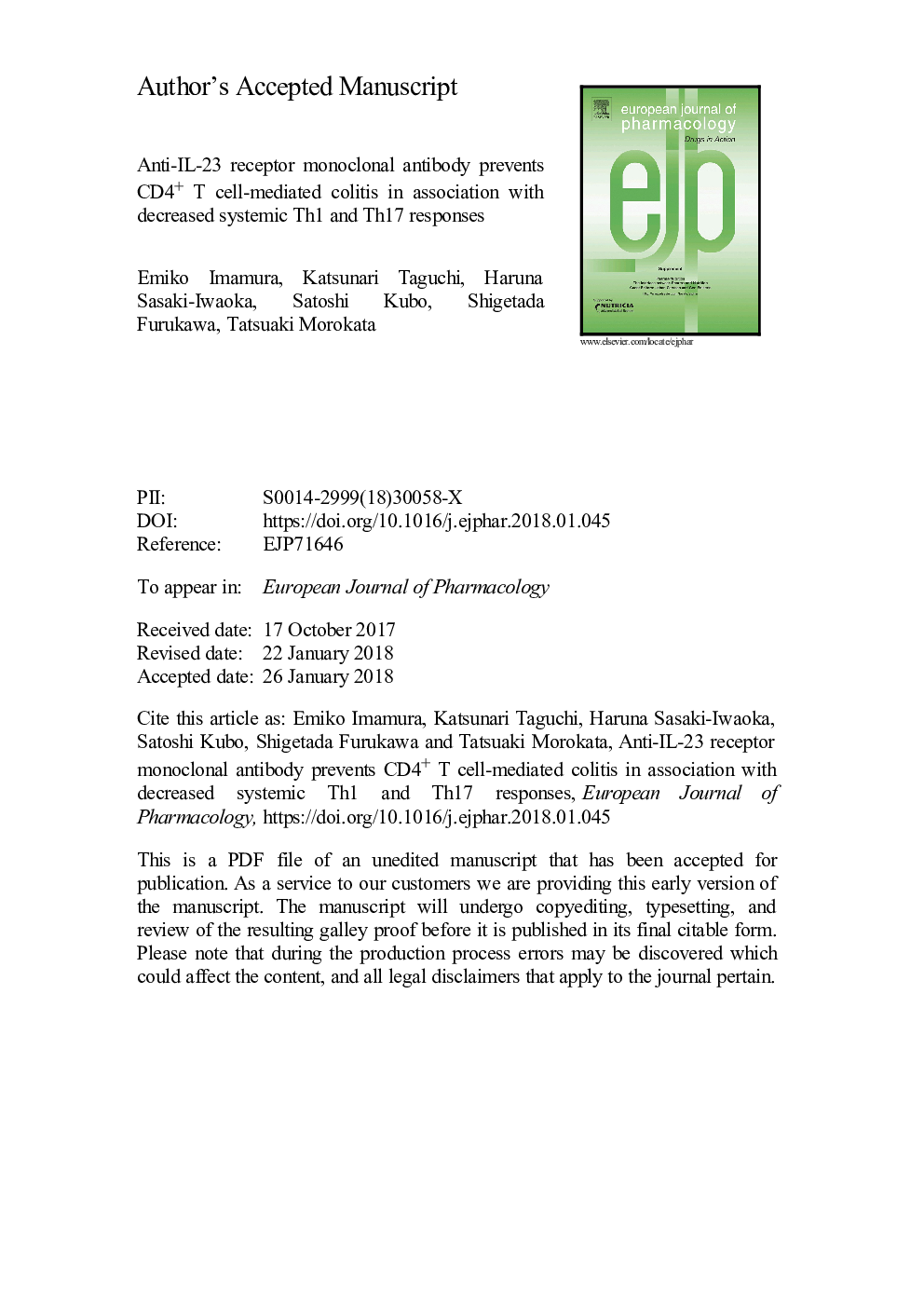| Article ID | Journal | Published Year | Pages | File Type |
|---|---|---|---|---|
| 8529312 | European Journal of Pharmacology | 2018 | 32 Pages |
Abstract
Experimental colitis studies, including T cell-mediated colitis, indicate that IL-23 rather than IL-12 orchestrates intestinal inflammation in inflammatory bowel disease (IBD). Previous studies have identified the roles of IL-12 and IL-23 using mice deficient for their specific subunits, p35 and p19, respectively. However, these studies do not completely reflect the difference in roles between IL-12 and IL-23, especially since the discovery of novel IL-12 family cytokines, which also include p35 or p19 subunits. Here, to clarify the contribution of IL-12 and IL-23 in T cell-mediated colitis, we compared the efficacy of a monoclonal antibody (mAb) to an IL-23-specific receptor subunit with that of an anti-IL-12/23p40 mAb in a naive CD4+ T cell transfer model of experimental colitis, which is associated with enhanced Th1 and Th17 responses. Both antibodies almost completely prevented the development of colitis and showed reduced associated histological changes, including mucosal hyperplasia, infiltration of inflammatory cells and loss of goblet cells. The anti-IL-23 receptor mAb inhibited not only the systemic Th17-response but also the Th1-response, both of which were up-regulated in this model. These results suggest that IL-23, but not IL-12, signaling is critical for the development of colitis. Blockade of IL-23 signaling is a promising therapeutic approach for IBD.
Related Topics
Life Sciences
Neuroscience
Cellular and Molecular Neuroscience
Authors
Emiko Imamura, Katsunari Taguchi, Haruna Sasaki-Iwaoka, Satoshi Kubo, Shigetada Furukawa, Tatsuaki Morokata,
